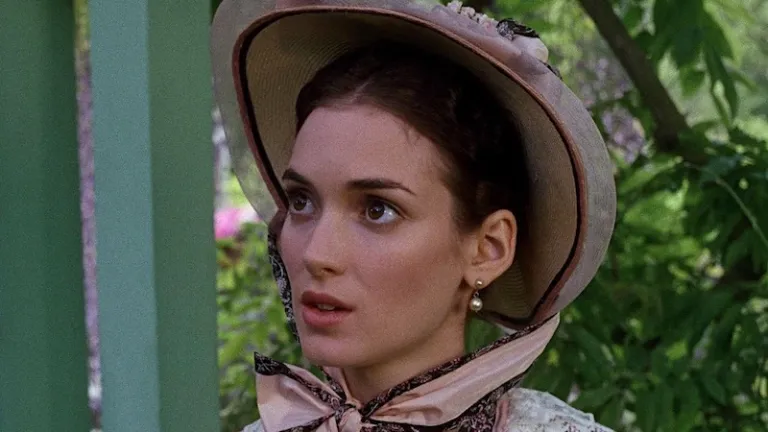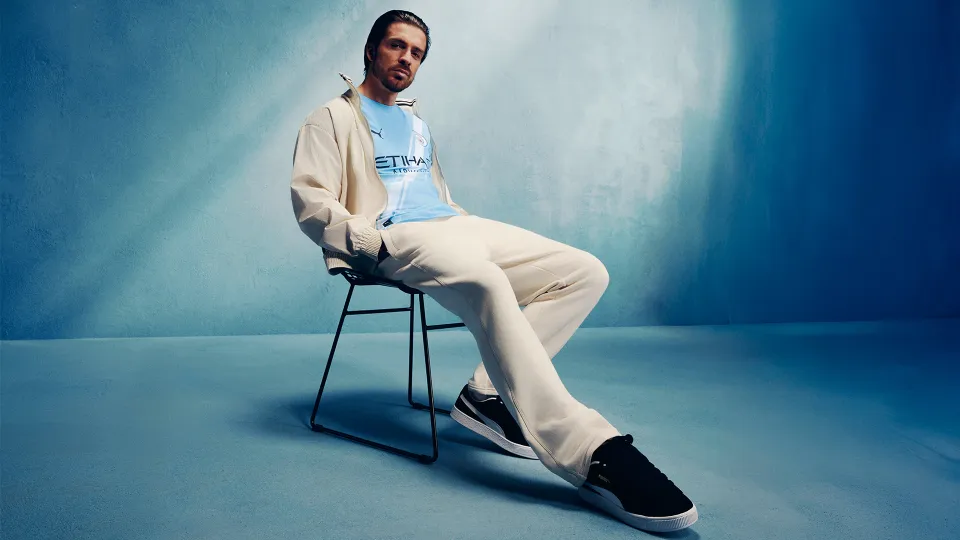Iconic Roles: The Best Winona Ryder Movies
Few actresses in Hollywood have managed to oscillate between indie darling and blockbuster star as gracefully as Winona Ryder. From her breakout performances in quirky dark comedies to award-nominated turns in period dramas, Ryder’s career has been a study in versatility and endurance. With the resurgence of her popularity thanks to Netflix’s Stranger Things, new audiences are rediscovering her deep filmography filled with memorable, often iconic roles.
This retrospective looks at Ryder’s most celebrated performances in film, exploring how she has shaped cinematic history and remained relevant across decades.
Beetlejuice (1988)
![]()
Lydia Deetz: The Goth Teen Who Made Being Different Cool
At just 17 years old, Winona Ryder stepped into the role that would define her early career. As Lydia Deetz in Tim Burton’s Beetlejuice, she portrayed a brooding, goth teenager with a sharp intellect and a morbid curiosity about the afterlife. The character, dressed in black and forever wielding a camera, became a symbol for young people who felt out of place in a conformist world.
Beetlejuice blends absurdist humor with gothic horror in a way only Burton could execute. Ryder’s performance is both deadpan and vulnerable, capturing the essence of a teenager navigating grief and disconnection through fascination with the supernatural. Her chemistry with co-stars Alec Baldwin, Geena Davis, and Michael Keaton helped elevate the film into a cultural phenomenon.
A Lasting Legacy and a Promising Return
The character of Lydia remains a touchstone in pop culture, inspiring fashion, art, and even modern TV characters. News of a long-awaited Beetlejuice sequel, possibly reuniting Ryder and Keaton, reignited interest in the franchise. Ryder’s potential return to the role more than three decades later is a testament to its enduring appeal.
Edward Scissorhands (1990)
A Dark Fairytale of Love and Alienation
In her second collaboration with Tim Burton, Ryder took on the role of Kim Boggs, the popular suburban teen whose life is upended when she meets Edward, a misunderstood artificial man with scissors for hands. Played by Johnny Depp, Edward is both terrifying and tragic, and it’s Kim who begins to understand his humanity.
Ryder’s portrayal of Kim offered a balance of vulnerability and strength. Though her character initially follows the social norms of her town, she slowly evolves into a compassionate figure capable of seeing beyond surface appearances. The romantic thread between Kim and Edward, bolstered by the real-life relationship between Ryder and Depp, lent an authentic emotional depth to the film.
The Cult Status of a Misfit Romance
Though not a box office juggernaut at the time of release, Edward Scissorhands became a cult favorite. It’s often credited as one of Burton’s most visually iconic and emotionally resonant films. Ryder’s performance remains central to the film’s enduring success, showcasing her ability to breathe sincerity into fantastical narratives.
Heathers (1989)
A Teenage Revolution in Dark Comedy
Before Mean Girls and Clueless, there was Heathers — a savage satire of high school life where cliques, popularity, and teenage angst are treated with brutal honesty and wicked humor. Ryder played Veronica Sawyer, the disillusioned member of the popular girl group, who teams up with the brooding JD (Christian Slater) to take down the social hierarchy — literally.
Ryder’s Veronica is sharp, conflicted, and strangely relatable despite the film’s outrageous premise. The role demanded emotional complexity, a sharp wit, and a capacity to veer from comedy to psychological thriller seamlessly. Ryder delivered on all fronts, cementing Heathers as a cult classic and solidifying her status as the queen of dark teen cinema.
Mermaids (1990)
A Turn Toward Domestic Drama and Coming-of-Age Themes
In Mermaids, Ryder starred opposite Cher and Christina Ricci in a quirky, heartfelt film about a non-traditional family navigating life and love in the 1960s. Ryder played Charlotte Flax, a deeply religious and awkward teenager who often finds herself at odds with her free-spirited mother.
The film’s themes of identity, generational tension, and female agency were ahead of their time, and Ryder’s nuanced performance captured the confusion and yearning of adolescence. It offered a more grounded portrayal of teenage life, contrasting her more stylized earlier roles.
Bram Stoker’s Dracula (1992)
A Gothic Romance in High Style
Directed by Francis Ford Coppola, this lavish adaptation of Dracula starred Ryder as Mina Harker, the innocent woman caught in the seductive pull of the vampire Count (Gary Oldman). The film was a visual feast, drenched in opulent costume and atmospheric tension.
Ryder was instrumental in getting the project off the ground after she brought the script to Coppola. Her performance as Mina required balancing sensuality, horror, and innocence — a complex emotional triad that Ryder managed with elegant restraint. The film’s romantic undercurrent, often missing from previous vampire adaptations, gave Ryder a chance to play within the classic gothic tradition.
The Age of Innocence (1993)
A Delicate Masterclass in Subtlety
In Martin Scorsese’s The Age of Innocence, Ryder portrayed May Welland, a woman of grace and apparent naivety in a 19th-century New York society. Opposite Daniel Day-Lewis and Michelle Pfeiffer, Ryder delivered one of the most restrained and intelligent performances of her career.
May is often underestimated by both the characters and the audience, but Ryder imbued her with a quiet strength and cunning that ultimately upend the film’s romantic expectations. Her performance earned her an Academy Award nomination for Best Supporting Actress, proving her dramatic capabilities extended well beyond teen roles and dark comedies.
A Break from Scorsese’s Usual Grit
Known for his work in gangster epics and male-driven narratives, Scorsese brought an unexpected softness to The Age of Innocence. Ryder’s performance was pivotal in anchoring the film’s emotional core, offering a portrait of a woman navigating the confines of high society with strategic grace.
Little Women (1994)
Jo March: A Literary Heroine Brought to Life
In Gillian Armstrong’s adaptation of Louisa May Alcott’s Little Women, Ryder took on the beloved role of Jo March, the independent and spirited aspiring writer. Surrounded by a stellar cast including Christian Bale, Susan Sarandon, and Claire Danes, Ryder brought fierce intellect and emotional authenticity to the role.
Her Jo was deeply ambitious, passionately loyal, and unafraid to defy societal expectations — a feminist icon that resonated across generations. Ryder’s portrayal earned her a second Academy Award nomination, this time for Best Actress.
Enduring Impact of Jo March
Decades later, Jo March remains one of Ryder’s most cherished roles. Her performance is often cited as the definitive screen version of the character, blending literary faithfulness with cinematic innovation.
Girl, Interrupted (1999)
A Stepping Stone for Future Greats
Though Angelina Jolie received most of the accolades (including an Oscar) for her role in Girl, Interrupted, Winona Ryder was the emotional anchor of the film. Playing Susanna Kaysen, a young woman navigating life inside a psychiatric hospital in the 1960s, Ryder offered a raw, understated performance that perfectly captured inner turmoil and existential confusion.
Ryder also served as a producer on the project, bringing the memoir to the screen after years of development. Her investment in the story added a layer of depth to her performance, and she paved the way for other female-led mental health dramas.
Black Swan (2010)
A Comeback Steeped in Psychological Horror
After a rocky period marked by personal and professional setbacks, Ryder returned to critical favor with her supporting role in Darren Aronofsky’s Black Swan. As Beth MacIntyre, the aging prima ballerina replaced by Natalie Portman’s Nina, Ryder delivered a chilling performance tinged with bitterness and fragility.
Though her screen time was limited, Ryder made every moment count. Her character, unraveling at the edges as her career slips away, served as a haunting warning of the psychological costs of perfection and fame. It was a stark, meta-commentary on Ryder’s own trajectory in Hollywood and signaled a new chapter in her career.
Stranger Things (2016–Present)
Joyce Byers: A Modern Icon of Resilience
Though not a film, Ryder’s role in Netflix’s Stranger Things deserves recognition as one of her most iconic performances. As Joyce Byers, the frantic but fiercely determined mother searching for her son in a town plagued by supernatural phenomena, Ryder reintroduced herself to a new generation.
Her emotionally raw and committed performance helped ground the show’s fantastical elements. Ryder’s portrayal of maternal devotion and psychological distress was both believable and deeply affecting, reminding audiences of her incredible range.
Reviving a Legacy
Stranger Things didn’t just revive Ryder’s career — it recontextualized her legacy. It allowed audiences who grew up with her films to reconnect with her, while younger viewers discovered her talents for the first time. The show’s success reaffirmed her place in pop culture history.
Honorable Mentions
Reality Bites (1994)
In this quintessential Gen X romantic dramedy, Ryder played Lelaina, a college graduate navigating post-education life. Her portrayal captured the aimlessness and hope of a generation, backed by a soundtrack that became as iconic as the film itself.
Frankenweenie (2012)
Reuniting with Tim Burton for this animated feature, Ryder voiced Elsa Van Helsing, adding charm and wit to the quirky black-and-white homage to classic horror.
Conclusion: The Enduring Magic of Winona Ryder
Winona Ryder’s career is more than a timeline of successful films; it’s a reflection of cultural shifts, evolving cinematic tastes, and the power of reinvention. From goth teens and rebellious writers to psychologically complex women and devoted mothers, her characters span genres and generations.
What sets Ryder apart is her ability to convey vulnerability and strength simultaneously. She invites audiences to look deeper, to challenge their assumptions, and to see the humanity behind every role. Her career is still unfolding, but her contributions to film are already cemented as iconic.
Ryder’s body of work is not just a collection of performances — it’s a rich, ongoing conversation with her audience. And as her legacy continues to grow, one thing is certain: Winona Ryder remains one of the most captivating actresses of our time.
- Natural Lip Filler – Elegant Lip Enhancement & Subtle Lip Augmentation - December 19, 2025
- Lip Augmentation in London – Lip Filler London & Natural Lip Enhancement - December 16, 2025
- Bonnie Blue secretly filming huge C4 show which will reveal ‘what her life’s really like’ after 1,000 men sex stunt - June 5, 2025





